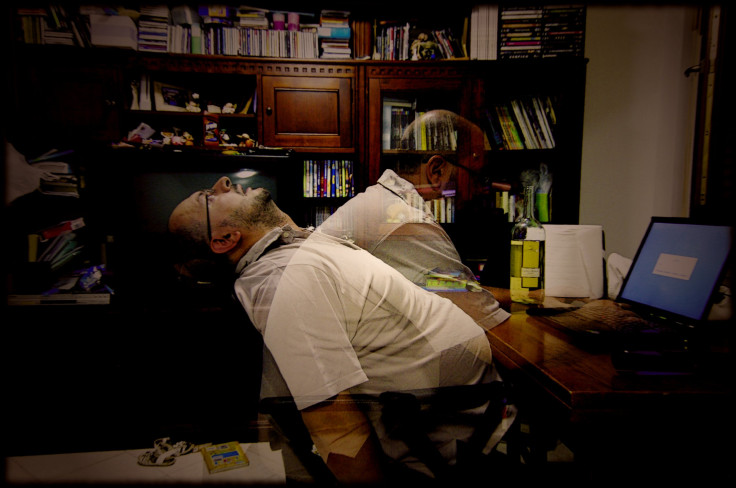Burnt-Out Workers Are More Likely To Make Spontaneous, Irrational Decisions

If you’ve ever been burnt out from school or even 40-hour work weeks, you’ve probably felt the effect of being worn down both physically and mentally.
Now, a new study hows that the effects of burnout might go farther than feeling tired and worthless; it may impact your ability to make sound decisions. Led by Evie Michailidis and Dr. Adrian Banks of the University of Surreywho in the UK, the study will be presented at the British Psychological Society’s Division of Occupational Psychology annual conference in Glasgow.
The authors examined 262 employees from various industries such as business, finance, education, social services and health care, and asked them to complete online questionnaires about their level of burnout as well as their decision-making process. About half of the employees worked around 40 hours per week. The authors then had the participants fill out answers to several scenarios where they had to imagine themselves in a risky situation at work, such as the example below:
Your colleague with whom you are sharing an office takes home confidential information without permission. You notice this couple of times and you are aware that this is a serious offence. If by any chance your boss realizes that the information is missing there is a possibility that you might be blamed as well.
You wonder what you should do?
1. You don't tell anything to your boss and hope that your colleague will not do that again
2. You tell your boss that your colleague is taking confidential information at home
Which option would you choose on a 0-10 scale (0=definitely A, 10=definitely B)? How likely is it that your boss notices that the confidential information is missing? (0=not likely at all, 10=extremely likely)
How serious would the consequences be for you if your boss notices that the confidential information is missing? (0= not serious at all, 10=extremely serious)
The authors found that the participants who had reported burnout and shown signs of it actually ended up making more spontaneous and irrational decisions — or avoid making decisions completely. “As decision-making may lead to detrimental consequences both for the employee and the organization it is important to encourage managers to design work environments that provide more suitable support to employees who are responsible for decision-making tasks,” the authors write.
Exhaustion, Cynicism, And Inefficacy
The Maslach Burnout Inventory is perhaps the most widely used measure for burnout, developed by social psychologists Christina Maslach and Susan Jackson. The inventory uses three features to define burnout: exhaustion, cynicism, and inefficacy. The opposite of burnout is engagement: characterized by energy, involvement, and efficacy.
Burnout consists of working past your limits in a hostile work environment, being surrounded by high expectations from numerous people, all while neglecting sleep, self-care, and lacking personal relationships. While this may sound a lot like stress, the main difference is that burnt-out people are completely disengaged and detached from their work, while stress often fosters increased productivity. Neither, however, are good for your health. Indeed, burnout has been linked to heart problems, depression, and anxiety; as well as a sense of hopelessness, and a loss of motivation and ideals.
There has been some discussion about whether burnout is its own individual category of mental disorder, or if it’s simply a form of depression. A 2014 study estimated that burnout and depression largely overlap, and about 90 percent of burnt-out workers meet diagnostic criteria for depression. Thus burnout has never fully been accepted as a separate disorder and isn’t included in the Diagnostic and Statistical Manual of Mental Disorders (DSM-5).
“Burnout is a cunning thief that robs the world of its best and its brightest by feeding on their energy, enthusiasm, and passion, transforming these positive qualities into exhaustion, frustration, and disillusionment,” Sherrie Bourg Carter writes on Psychology Today.
To overcome burnout, make sure to keep work away from home and carve out time to relax. Most importantly, high-achieving people often have a tendency to say “yes” to new projects or social plans; it’s crucial to learn how to say no and slow down. In order to win the race, one must preserve energy accordingly; continuing to run will only make the race harder long-term.
And perhaps one way to stave it off is to “rediscover your passion,” Bourg Carter writes. “Rediscovering it (or finding a new one) with a new self-awareness that it doesn’t have to be all-consuming can be the spark you need to reignite your flame.”
Published by Medicaldaily.com



























